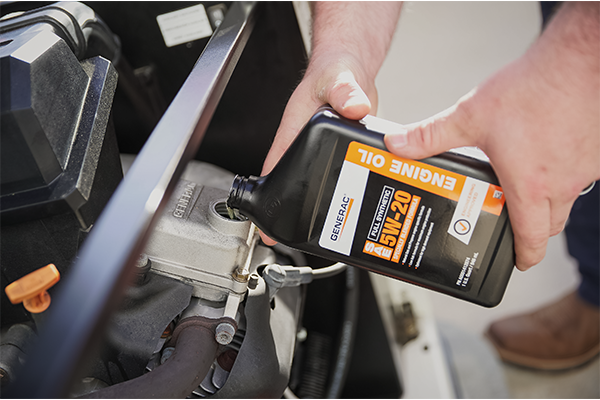Many homeowners in the market for backup generators worry about how much noise their units might make. After all, they require an engine to drive the alternator that generates electricity. And that sounds like it should be loud.
But how loud are generators, exactly? And do they comply with neighborhood noise levels?
The Generac generators we offer produce around 66 dB standing at 23 feet – a standard distance for measuring generator sound output – which isn’t particularly high. That noise level compares to around 68 dB for air conditioners 20 feet away and 70 dB for washing machines at a similar distance. For comparison, other common noises in this ballpark include flushing toilets at around 65 dB and vacuum cleaners in an adjacent room at around 70 dB. Normal conversation is around 60 dB, so Generac generators are only slightly louder.
Still worried? Fear not. This post presents five tips to help you slash generator noise even further. Check them out below:
Install An Acoustic Barrier
An acoustic barrier is a physical structure that reduces the energy of sound waves as they travel out of the generator. Some models come with built-in barriers that absorb noise from the source, while others come separately.
If the generator doesn’t offer any kind of soundproofing, you can experiment with DIY soundproofing methods, such as building concrete barriers around the generator or piling up sandbags. Just remember that your generator’s cooling requires at least three feet of space on all sides.
Use Acoustic Panels Around The Generator
Acoustic panels are similar to acoustic barriers in the sense that they attempt to block the transmission of sound waves physically. Sound travels as a wave and so can be reflected and refracted. Acoustic panels work by either absorbing sound energy or reflecting it before it reaches the external environment.
Placing these free-standing options strategically allows you to substantially cut down on noise levels without having to interfere with the unit itself physically. Plus, they are usually all-weather, meaning you can put them outside. Options tend to be quite advanced because of other industries’ need (such as construction) to mask sound coming from loud machinery.
Acoustic panels help keep ambient noise levels to a minimum. The World Health Organization recommends a background noise level of 50 dB or less during daily life.
Reduce Vibration With An Isolation Mount
Because generators rely on rotating a metal armature, they can generate vibration when ramping up and under load. Using an isolation mount can mitigate this problem.
These work by placing padding between the generator unit and other structural components. The material absorbs energy from the generator, preventing it from transferring to surrounding structures which might lead to rattling.
Change Your Landscaping
You could also try landscaping to reduce your generator’s noise output. While not as effective as regular acoustic panels, changing your land’s elevation or planting shrubs around the generator could considerably reduce the decibel rating. Fitting your generator to the floor and surrounding it with pebbles could cut noise levels even further. As the unit vibrates, stones distribute energy chaotically, helping to cut down on annoying, repetitive rattling sounds.
Please note that whenever you landscape to mitigate your generator’s noise, you need to be sure to leave sufficient room for cooling. Units typically need at least three feet on all sides. Double-check the user manual to see how much distance you need to leave.
Use Vibration Damping Materials
Another way to attack the problem is to use vibration dampening materials when fitting the generator to the ground or its mounts. Owners, for instance, will often use rubber washers on the screws that connect the unit to the floor. When in operation, these absorb a portion of the vibration, cutting down overall noise production. They can also prevent any fittings or screws from rattling loose over time.
Conclusion
In summary, many homeowners are naturally concerned about generator noise. But the sound produced by these machines is much lower than many expect – similar to a flushing toilet or washer spinning up. That means that models, including Generac, are not much louder than normal conversation.
What’s more, when you implement the sound mitigation techniques described above, the picture becomes even rosier. Acoustic barriers, damping materials, landscaping, and isolation mounts can considerably reduce your model’s real-world noise output – yet another excuse to add a generator to your home.
Get a free quote today from Generator Supercenter of NW Maryland online or, call us at 301-887-5303 or visit our showroom at 415 S. Jefferson St, Frederick, MD 21701.








